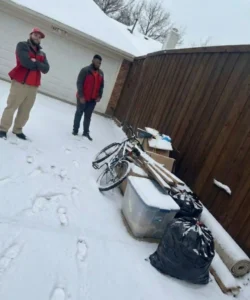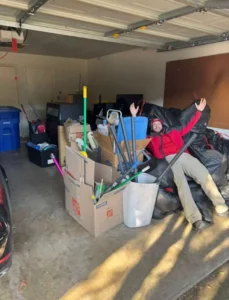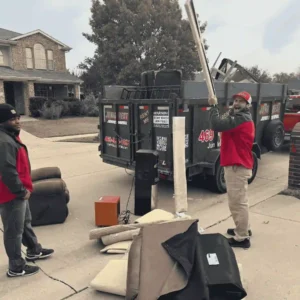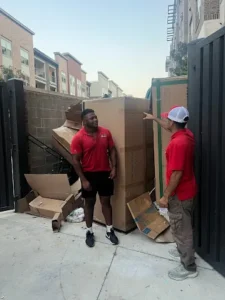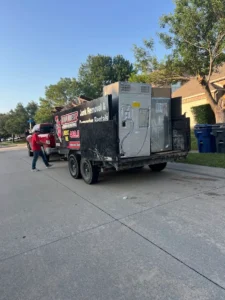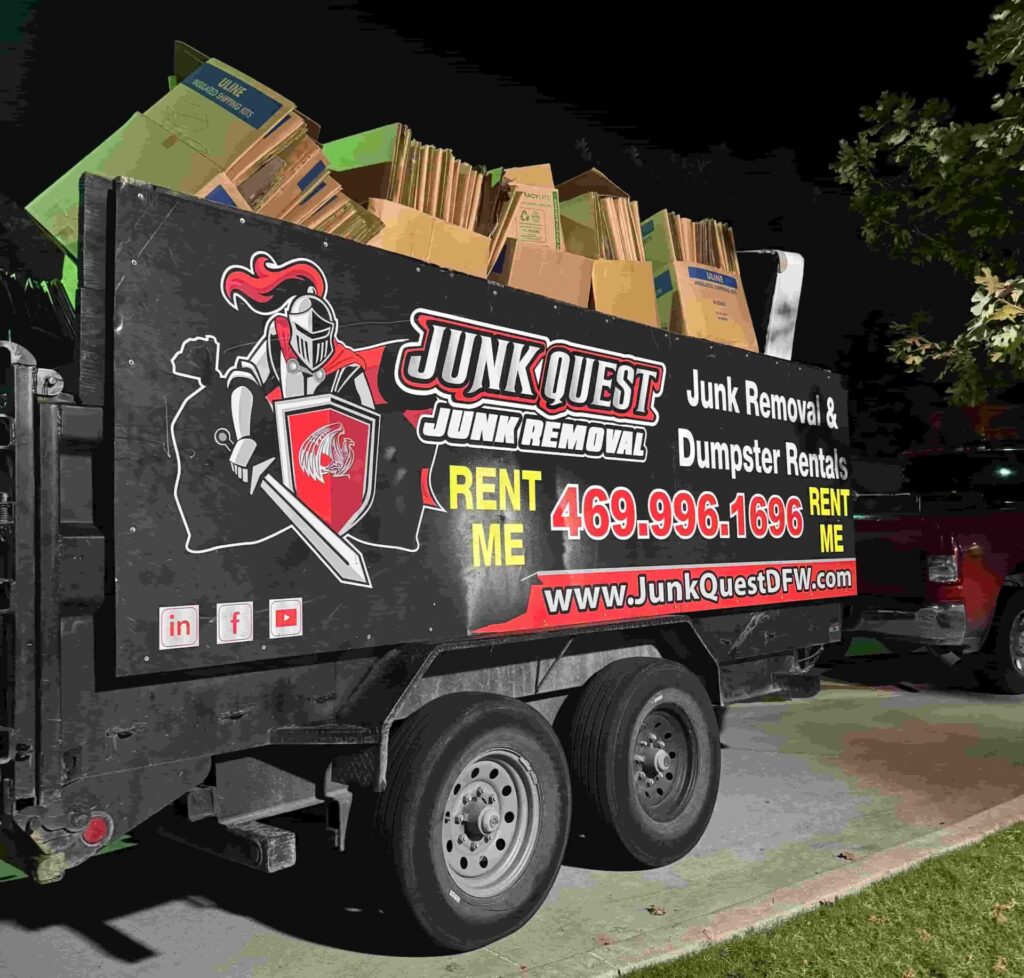
In a world facing mounting environmental challenges, zero-waste initiatives are emerging as powerful examples of what’s possible when communities and businesses commit to sustainability. These initiatives aim to eliminate waste by rethinking how we produce, use, and dispose of materials, creating a cleaner environment and advancing the global circular economy.
Here’s a look at how different regions are embracing zero-waste living, and how local businesses like Junk Quest in North Dallas are applying these same principles through eco-friendly junk removal and recycling practices.
What Zero-Waste Really Means
Zero-waste is more than a trend, it’s a long-term strategy. At its core, the philosophy is built around efficiency and respect for resources. The goal is simple: nothing sent to landfill. Instead, every product and material is reused, repaired, repurposed, or recycled.
This mindset encourages individuals, governments, and companies to design out waste from the beginning, ensuring that what’s created today doesn’t become tomorrow’s trash.
The Circular Economy Connection
Zero-waste and the circular economy go hand in hand. Unlike the traditional “take-make-dispose” model, the circular economy focuses on keeping materials in use as long as possible. Products are built to last, repaired when needed, and recycled at the end of their life.
Businesses worldwide are shifting toward this model, using product-as-a-service, sustainable packaging, and recycling-driven production. Measuring success in this system often includes metrics like recycling rates, landfill diversion, and carbon reduction.
At Junk Quest, this principle is part of everyday operations. Our team sorts, donates, and recycles items from each junk removal project, ensuring that materials like metal, cardboard, electronics, and furniture stay out of landfills whenever possible.
(See also: Furniture Removal, Electronics Disposal, Cardboard Removal)
Innovative Zero-Waste Communities Around the World
1. Kamikatsu, Japan — A Global Zero-Waste Pioneer
The small town of Kamikatsu in Japan has achieved an impressive 80% recycling rate through a meticulous waste-sorting system. Residents separate their trash into 45 different categories, helping ensure nearly everything is recycled or composted.
Community participation is the backbone of Kamikatsu’s success. Regular education programs keep residents engaged, while reuse centers and second-hand shops create economic benefits and jobs.
2. San Francisco, USA — Leading by Example
San Francisco has long been a model for sustainability in the U.S. Through mandatory composting, advanced recycling systems, and smart-waste technologies, the city diverts roughly 80% of its waste from landfills.
Public education campaigns, school initiatives, and data-driven waste tracking tools help the city stay on target toward its Zero Waste 2025 goal.
3. Ljubljana, Slovenia — Europe’s Green Capital
Ljubljana became the first EU capital to adopt a zero-waste target. With over 68% of its waste recycled, the city’s focus on prevention, reuse, and repair programs has inspired other European municipalities.
Public-private partnerships have been crucial to its progress, allowing local repair shops, recycling centers, and educational programs to flourish together.
4. North Dallas, Texas — A Local Perspective
Closer to home, the North Dallas area (including McKinney, Allen, Frisco, and Plano) is steadily embracing zero-waste principles. Local businesses and residents are recognizing the value of recycling, donation, and responsible disposal.
That’s where Junk Quest plays a role: Helping homeowners, property managers, and contractors keep reusable materials out of landfills through organized recycling and donation partnerships.
From garage clean-outs to construction debris removal, each project is handled with the same mission: make waste reduction the default, not the exception.
(Explore related services: Construction Debris Removal, Garage Cleanouts)
How Technology Supports the Zero-Waste Movement
The rise of digital tools and smart technologies has made zero-waste management more efficient than ever:
- IoT Smart Bins: Sensors track fill levels, optimizing pickup routes.
- Waste-Tracking Apps: Help residents monitor consumption and find recycling points nearby.
- AI-Powered Sorting Systems: Increase accuracy in recycling facilities.
- Chemical Recycling: Breaks plastics down into reusable components, expanding what can be repurposed.
Cities and companies using these tools report not only higher recycling rates but also lower operational costs and reduced emissions.
Community Involvement: The Heart of Zero-Waste
Every successful zero-waste effort begins with people.
When residents, businesses, and local governments work together — hosting recycling drives, teaching sustainability in schools, or simply making eco-friendly habits part of daily life — progress accelerates.
At Junk Quest, our team often donates usable furniture or appliances to local families and charities, extending the life of items while reducing landfill volume. These community efforts are small but meaningful steps toward a broader zero-waste future.
Challenges and Opportunities Ahead
Despite incredible progress, zero-waste initiatives still face real challenges:
- Changing habits and consumption patterns takes time.
- Infrastructure for recycling and composting varies between cities.
- Funding remains a hurdle for local governments and smaller programs.
Yet, these same challenges open doors for innovation, from new materials and technologies to smarter policy design. As more businesses adopt sustainable models and more cities strengthen their recycling systems, the vision of a zero-waste world becomes less idealistic and more achievable.
FAQs About Zero-Waste Initiatives
Zero-waste means minimizing what ends up in landfills by reusing, recycling, composting, or repurposing materials. The goal is to design systems where every resource serves a continuous purpose.
It reduces greenhouse gas emissions, conserves raw materials, and decreases pollution caused by traditional waste disposal methods like landfilling and incineration.
Simple steps include using reusable containers, composting food scraps, recycling correctly, and donating items instead of discarding them.
Junk Quest follows eco-friendly disposal practices by recycling metals, cardboard, and electronics, and donating reusable furniture and appliances to local charities, keeping tons of waste out of landfills each year.
While full zero-waste may not be realistic everywhere, every city can move closer by adopting sustainable habits, improving recycling infrastructure, and supporting responsible haulers like Junk Quest.
Conclusion: The Path Forward
Zero-waste initiatives are reshaping the way we think about consumption, responsibility, and sustainability. Around the world — from Japan’s recycling villages to San Francisco’s tech-driven composting systems — communities are proving that progress is possible.
Here in North Dallas, companies like Junk Quest are doing their part by integrating recycling, donation, and responsible disposal into every job. Each pickup contributes to a cleaner, greener community and helps move the region toward a truly circular economy.
The journey to zero-waste is ongoing, but every conscious decision counts. By choosing sustainable services, supporting local recycling programs, and spreading awareness, we can all help build a world where “waste” no longer exists, only resources waiting for their next purpose.
As zero-waste practices continue to grow globally, communities right here in North Texas are taking meaningful steps toward sustainability. From donating reusable items to improving recycling participation, every effort helps reduce waste and protect our environment. Local haulers like Junk Quest play a key role by providing eco-friendly junk removal and responsible disposal across the region.
See more about our junk removal and recycling services in your area:
McKinney | Frisco | Allen | Plano | Fairview

